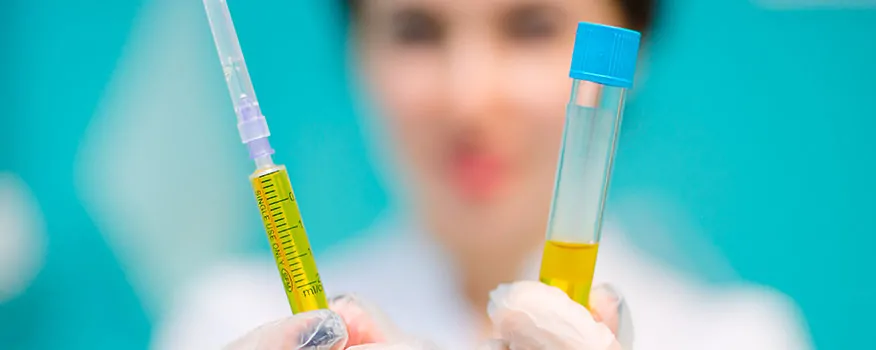The human body has a natural ability to heal itself. For example, when we get sick, our immune system kicks in to help fight off the infection. When we get a cut, our blood clots to stop the bleeding. The cut and scarring usually go away within a few days or weeks. Sometimes, however, our bodies may need a little extra boost to heal faster and more effectively. That’s where platelet-rich plasma comes into play.
Platelet-rich plasma is a form of regenerative medicine that can enhance the natural growth factors that the human body uses to heal itself. Plainly speaking, platelet-rich plasma, or PRP, may help activate and speed up the body’s healing process.
What is Platelet Rich plasma?
Platelets are responsible for blood clotting, but they also activate the production of cells and the repair of tissues. Platelet-rich plasma is a concentration of your own platelets. These platelets can be then be injected into certain areas of the body to enhance the healing process.
How are PRP injections prepared?
First, a sample of your blood is taken. Next, the blood spins in a centrifuge so that the platelets can separate from the other components of the blood and become concentrated. Lastly, the concentrated platelets are then injected into the injured tissue of the body where growth factors are released and more reparative cells can be stimulated.
What are the benefits of PRP injection therapy?
PRP injections have gained recognition for their use in treating a variety of conditions, from sports injuries to hair loss to skin rejuvenation.
-
PRP for hair loss
Many men and women suffer from hair loss. PRP injections may be effective at preventing hair loss and aiding in new hair growth by stimulating the cells important for hair growth. One systematic review reported that 84% of the studies saw a positive effect of PRP for androgenetic alopecia (hair loss with aging) compared to control groups. Among those, 50% of the studies saw a significant improvement. While PRP for hair loss seems promising, more research is needed in order to specify what concentrations or formulations of PRP are most effective at stimulating hair growth.
-
PRP for pain
Tendon, ligament, muscle, and joint injuries can cause pain and can take a long time to heal. PRP injections may be added to your treatment regimen to help enhance healing. This can decrease pain and help you return to your normal activities sooner. One meta-analysis of randomized controlled trials reported that “PRP injections were associated with better pain relief and functional outcomes” in patients with common shoulder diseases. Another study suggested that PRP injections may improve the symptoms of osteoarthritis of the knee joint.
-
PRP for skin
PRP injections are sometimes used to help rejuvenate wrinkled aged skin. PRP works to stimulate collagen and other growth factors that can help rebuild and repair damaged tissue. Because of this, PRP has been used to improve skin texture and decrease fine lines and wrinkles that may come with age. At this time, however, more studies are needed in order to determine the efficacy of PRP for skin rejuvenation.
What are the side effects of PRP therapy?
PRP injections are made of your own cells and blood, so the risk of adverse reactions is lower than if using other injectable medications. However, some rare but important side effects to be aware of include:
- bleeding
- tissue damage
- infection
- nerve injuries
The Takeaway
Studies have shown that PRP can be beneficial in the treatment of certain conditions.
However, more research is needed in order to better understand the mechanisms behind how PRP contributes to tissue regeneration as well as the concentration of platelets that can result in the most adequate regeneration.
Also, while the equipment used to produce PRP and the injections themselves have been cleared by the FDA, PRP itself is still considered investigational. Because of this, most insurance carriers do not cover this procedure.
If you are interested in receiving PRP injections, be sure to discuss the benefits and risks with your doctor and inform them of any questions or concerns you might have.
Dr. Sergio Guiteau is a physician who has certifications in Aesthetic Medicine and is board certified in Family Practice and Sports Medicine. He specializes in Anti-Aging Medicine and blogs on Advancedrejuv.com/blog

